
Chromeo: “We’re still as enthralled by funk and analogue synths as we were before”
The iconic duo swap bodacious for sagacious on their new stripped-back record, Adult Contemporary
Dave 1 (left) and P-Thugg (right) of Chromeo. Image: Fiona Garden for MusicTech
As they reflect on 20 years in the game, Chromeo is content. Having crafted a niche within pastiche, the Canadian duo have done the near impossible — created a sound that’s heavily referential yet recognisable as their own.
- READ MORE: Back to school with Dillon Francis: Why a maturing music career still needs class clown antics
Call to mind a Chromeo song; whether it’s Dave 1’s tongue-in-cheek lyrics about the rollercoaster of modern dating, the iconic sound of P-Thugg’s talkbox, the thick and punchy MPC drums or an Oberheim synth stab — filter fully open — Chromeo’s sonic universe is a carefully considered creation, both unapologetically allusive and strictly bespoke.
“Our biggest influence is ZZ Top,” says Dave 1, speaking via video from a Parisian hotel room — perfectly on-brand for the chic frontman. “Not because of what the music sounds like, but their commitment to the bit.”
Calling Chromeo’s brand of finger-snapping, playful funk a ‘bit’ might seem to undermine their craft but Dave believes that the story of Chromeo is more than the music. Their creative relationship is defined by the narrative they set for themselves.
“We’ve developed [the bit] and refined it, and we’ve evolved within it. We’re still as enthralled by funk and analogue synths, and all the nerdy bits of our music, as we were before. We still come up with lyrics that make each other laugh and we’re still setting production challenges for ourselves.”
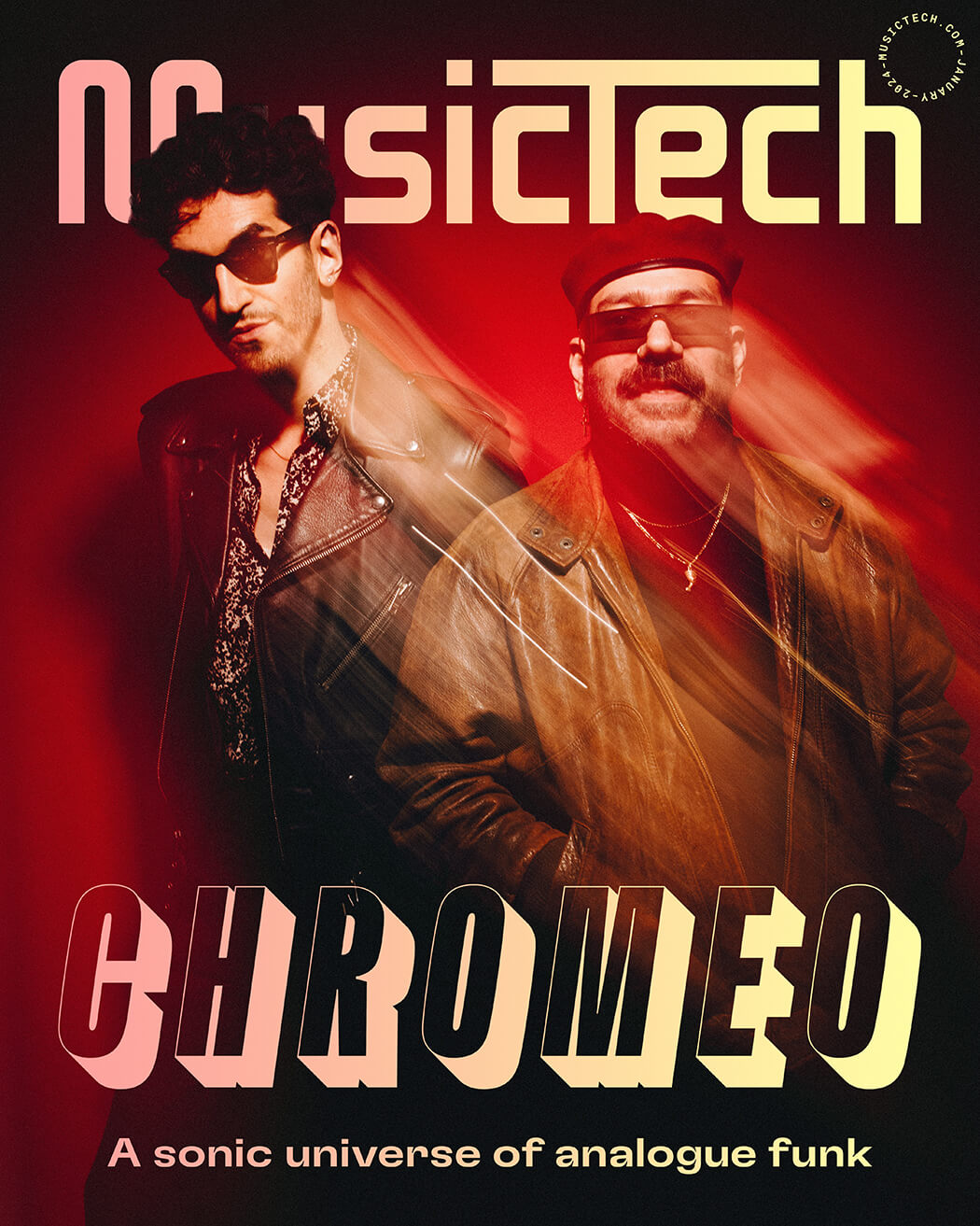
David ‘Dave 1’ Macklovitch and Patrick ‘P-Thugg’ Gemayel came up in the unlikely era of indie sleaze, sharing lineups with the likes of Hot Chip, Cut Copy and MGMT. The duo stood out, not just for their sharp dressing but for their crisp, tight productions and distinctive talkbox call-and-response.
As their stock grew among DJs and the 00s’ blogosphere — helped by Dave’s younger brother A-Trak and some choice remixes — Chromeo began to quietly build a cult following, transcending trends and staying loyal to the Funklordz name they’d been adorned.
Their cult rep went mainstream with their first Grammy nod for their 2018 album Head Over Heels, a record that oozed West Coast sophistication by design.
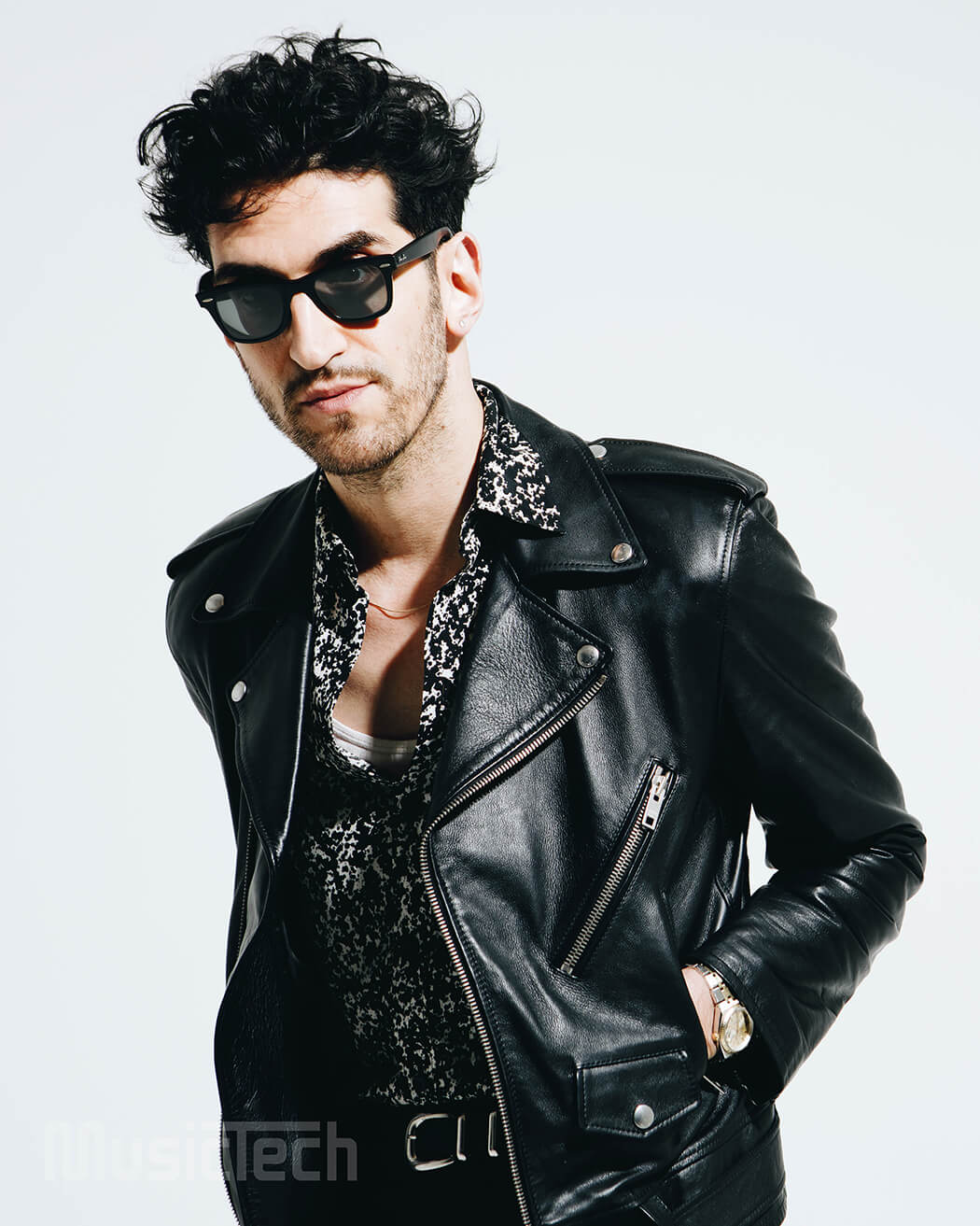
“Every album for us is a reaction to the previous album,” Dave continues, sitting up in his chair to give more credence to his next point. “Our last record was really slick and polished. We had three different mix engineers and two mastering engineers — we wanted to have the widest, cleanest, loudest and most Los Angeles version of Chromeo possible. We had a million collaborators and it was the first time in our career we did that, and it was our first Grammy nomination.”
This time around things were different – Adult Contemporary, out on 16 Feb, finds Chromeo in a more sophisticated mood, a more intimate sound. The album sees the duo covering the same tongue-in-cheek themes you’ve heard Dave ponder before but with the grown-up twist the title suggests. Seduction, partying and monogamy are very much present, but also marriage – Dave begs: “Let’s talk about loyalty, instead of lawyer fees,” in the first minute of the album, setting the tone of what’s to come.
The lyrical sincerity – all within the realms of the ‘bit’ – matches that of the production, opting for a more minimal ‘live’ sound, with sparse layers and considered space for instruments to breathe.
“On this record, we did everything with P and me,” explains Dave, “with only one mixing engineer, one mastering person — two people we choose specifically for their sound, two people who only work with analogue — and it was a whole other musical adventure.”
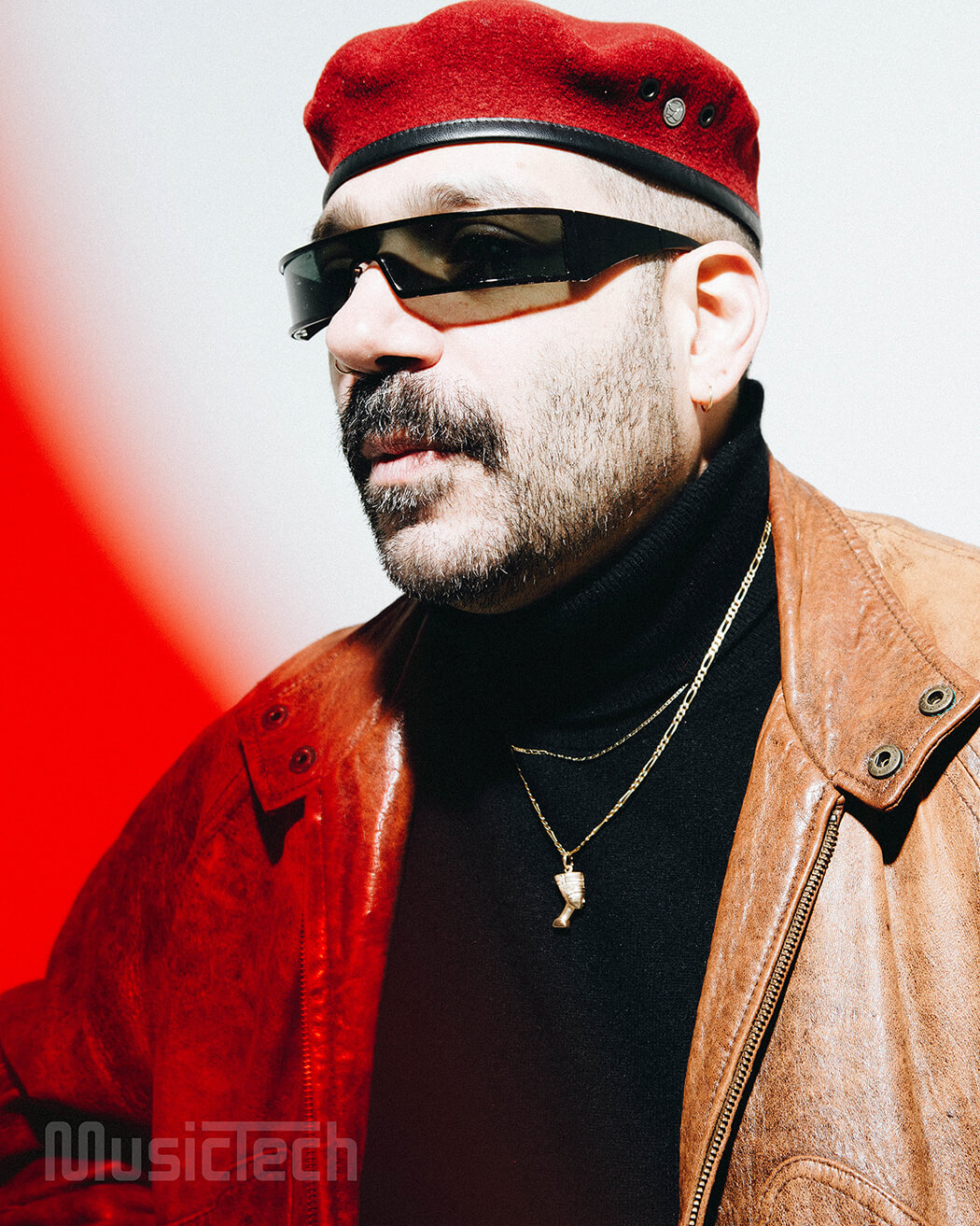
Those two people were Morgan Geist and Alex Gopher; the Metro Area and Storm Queen producer taking on mixing duties while the French touch legend provides the final sheen. Both their analogue approaches are evident in the opening seconds (I Don’t Need A) New Girl, its depth and warmth instantly apparent, space and air intact.
The album continues in this vein — fewer elements, fewer layers, and more room for melodies and vocals to breathe. It feels more ‘live’ as a result, which isn’t a coincidence. But it’s also not ‘empty’ — far from it. Each element has its considered place, and where the transients might be softer, the weight is felt just as heavily across the frequency spectrum. Forget the modern, brittle highs and bombastic bass that fight for attention across most new music releases. Adult Contemporary sounds smooth and warm, channelling the analogue sound of their collaborators.
“The new album is about intimacy. It’s about adult relationships, whether it’s with a significant other or P and I’s relationship, which is a marriage in itself. We had to contract the circle and make it super intimate.
“When we went with Morgan Geist, it wasn’t for the Recording Academy, it was for MusicTech, it was for Erol Alkan, it was for my peers. No one in Hollywood knows who Morgan Geist is, but I didn’t give a fuck about that this time around.”
Geist’s reputation among producers is one of admiration. Metro Area needs no introduction — their self-titled 2002 album is still revered as a classic — while his chart-topping work as Storm Queen proved Geist could simultaneously be an underground hero and a number-one artist, remaining elusive throughout.
We were curious, given Geist’s less-is-more and analogue-heavy approach, how much they adapted their songwriting, knowing that Geist would be working the dials.
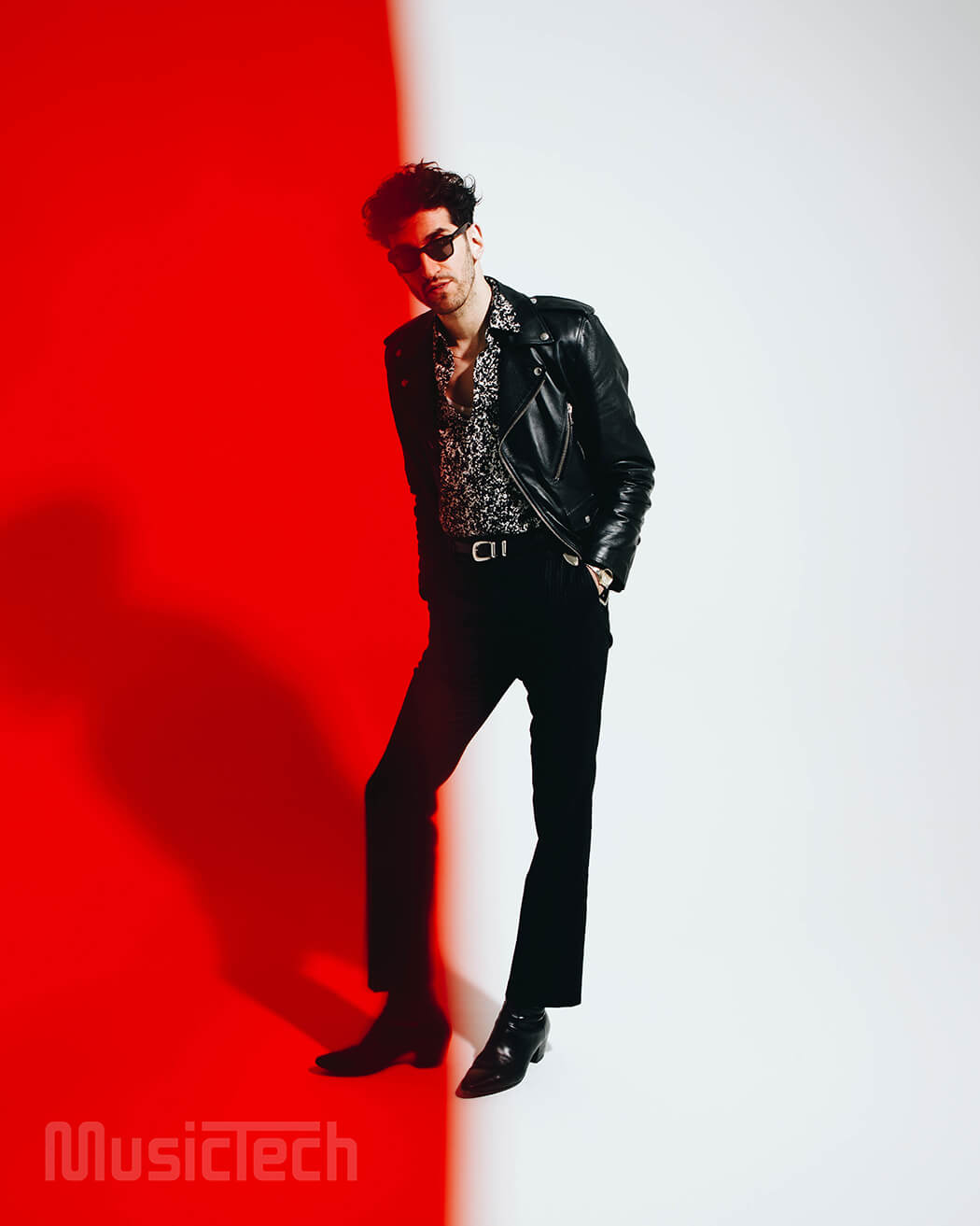
“It’s a great question,” Dave smiles, seemingly recalling the somewhat unconventional approach. “The first song he mixed was Words With You, and the pre-mix was the most ‘organic’ sounding song on the album — it’s got the horns, live drums, live bass. Once we heard what he did with that, we knew what he’d do with other songs, so we produced them and made extended tails, knowing he would freak it.” Many of Adult Contemporary’s songs end with an extended section – a funky coda throwing back to a pre-streaming age where albums included easter eggs and skits.
Gopher’s impact is also felt on the record. His French touch provides an inescapable comparison to Daft Punk’s Random Access Memories. A combination of Geist’s use of space, Gopher’s slick mastering and both their analogue signal paths make Adult Contemporary a delectable sonic treat. But analogue can’t be recalled, copy-and-pasted or saved for later – old-school equipment means old-school schedules.
“When we first approached Morgan to mix the album,” continues Dave, with a grin, “we asked ‘How long do you need to mix each song?’ and he was like ‘A week’. A week per song? I was like, ‘We’re not gonna make the deadline’. So he said, send me the songs as you finish them, so we re-jigged our schedule. But that allowed us to finish a song, send it, finish a song, send it. So as the process was evolving, our production process also became more cognisant of what this was gonna sound like.”
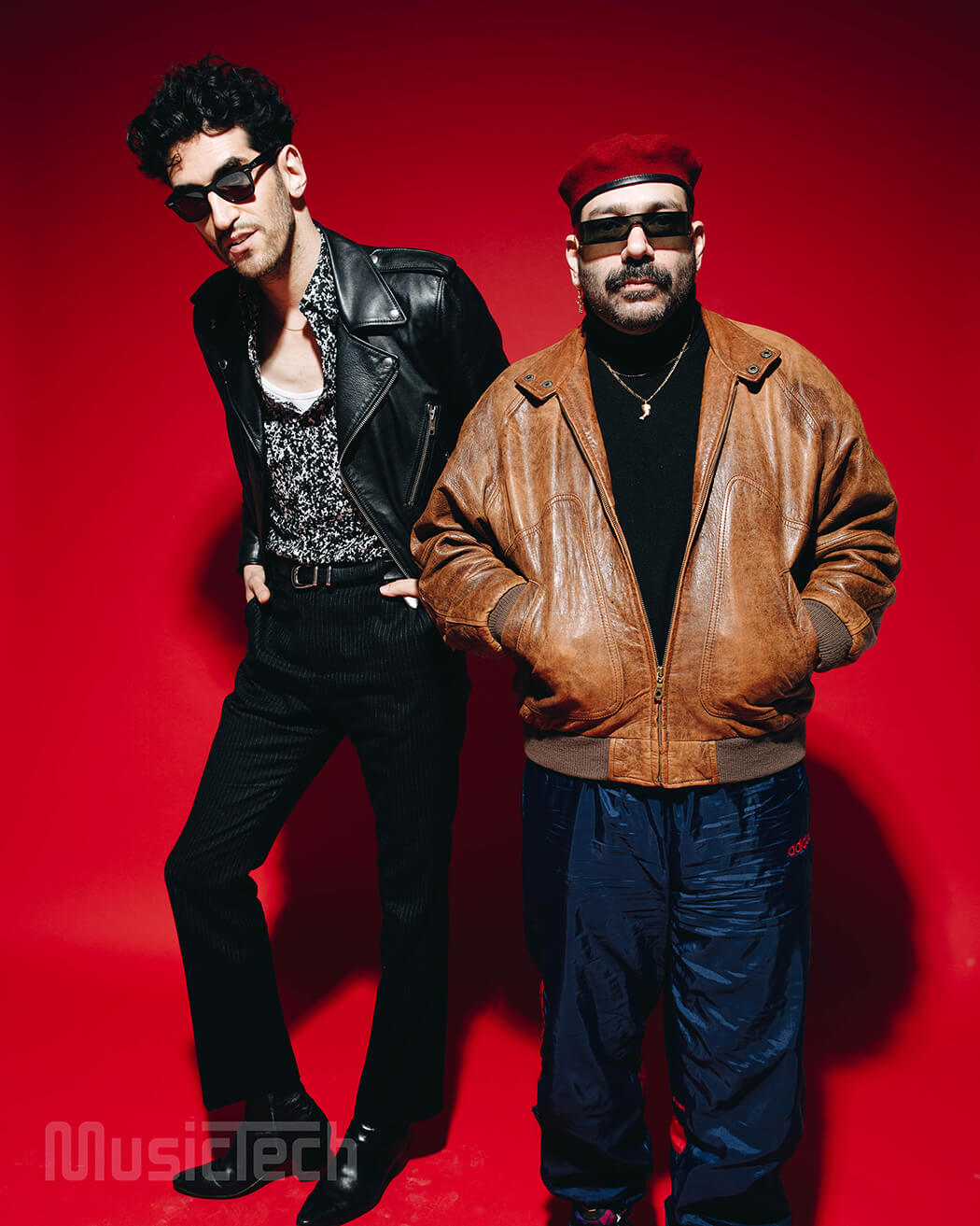
Another producer who significantly impacted Chromeo’s career was Philippe Zdar. The French artist, engineer and one-half of Cassius sadly passed away in 2019, but not before he could mix everyone from Phoenix, Kindness and The Rapture to Hot Chip, Sébastian Tellier and of course, Chromeo, on both Fancy Footwork and Business Casual.
“Fancy Footwork was when we found our sound,” recalls Dave, “and he had a big role to play. With Philippe, we gave him really raw tracks — they didn’t have much processing. Our songs only had like 13 tracks of music, and three tracks of vocals, so he was able to give the music its space, and do his thing. It was a really beautiful process.”
Zdar’s tragic death at the age of 52 makes these formative albums a bittersweet listen.

“Working with Zdar was, for me, the first time I realised how the mixing process could be as artistic as the music,” says P-Thugg, dialling in from his native Lebanon. “[Before Zdar], I thought a mix was a mechanical thing. When we received the first mixes [from him], I was like �‘Woah, this is a different song.’ There’s artistry in that. There’s kookiness. It made me look differently at the process of mixing and the process of producing. I keep that until today.”
Zdar’s approach, where EQs, reverbs, compressors and other outboard gear were treated like instruments in their own right, was echoed by Geist when mixing Adult Contemporary.
“That’s the discussion we had when we were trying to figure out who was gonna mix the [new] record,” P continues, “and who was gonna give that added value the same way that Zdar gave an added value to our music. Morgan’s not an engineer, he’s an artist. And I think that’s what all mixing should be, personally.”
That open approach to experimentation at the mix stage saw Chromeo and Geist stumble on what Dave calls “their best-sounding vocals yet”.
“The breakthrough on that was [Eventide’s] H3000 on all my vocals, all the time,” reveals Dave. “In our minds, H3000 equals Phil Collins and Peter Gabriel, so we never really went in on it. But Morgan [convinced us]. Half the songs have no reverb on the vocal — more than half! It’s just H3000. That old-ass piece of gear made our vocals come to life in a way they never had up until then.”
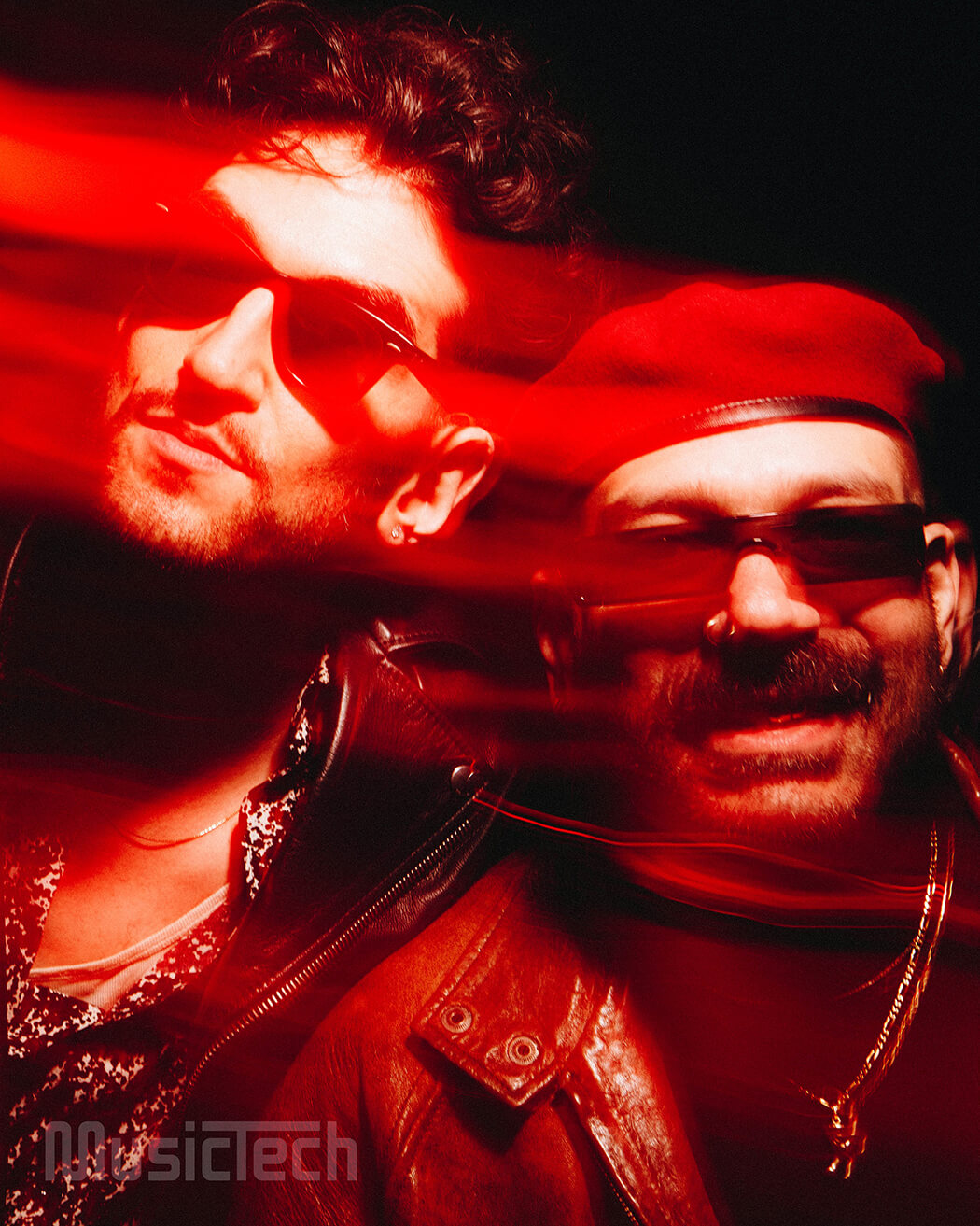
Long before Geist got his hands on Chromeo’s recordings, the duo began writing the songs, often remotely.
“We’ll [usually] take some time apart so I can come up with demos,” explains P, reflecting on their collaborative process. “Dave comes up with ideas, melodies and concepts. I usually send Dave some demos and he picks what he likes. I’ll sometimes have some lyrics or very basic melodies, and sometimes he’ll piggyback off that.”
Though Chromeo as an act just passed its 20th anniversary, the pair have been friends for 27 years; enough to develop their own unique and distinct way of communicating. That psychic bond that long-time collaborators often develop means that P and Dave work symbiotically, even when thousands of miles apart.
“A big part of what we do is our internal language that we’ve developed over the past 27 years, and that makes it easier to communicate. He might say ‘Make that more funk, make that 1982 Prince,’ etc [and I’ll know what he means].”
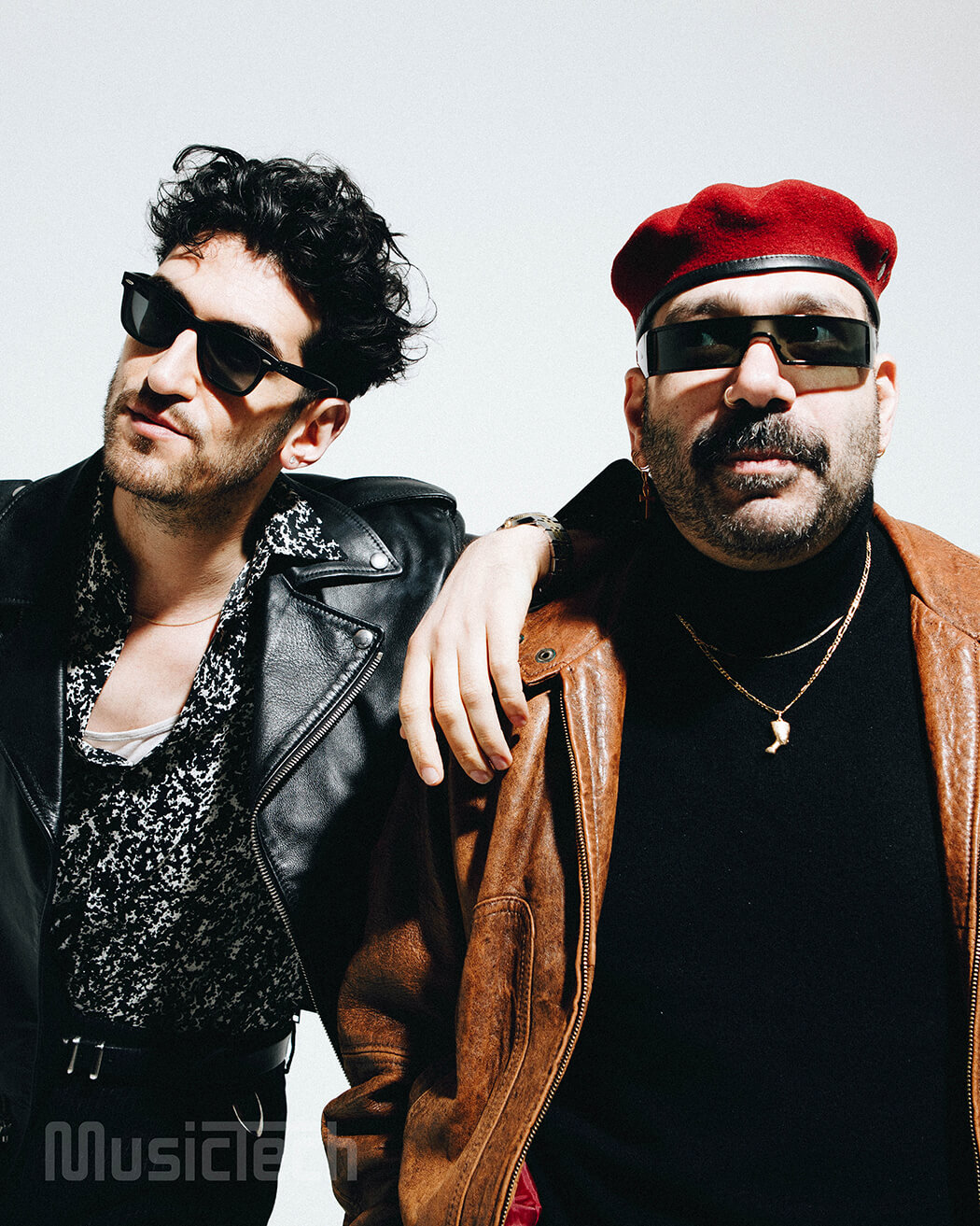
What’s P’s go-to synth when Dave asks for 80s funk? It’s complicated.
“This is gonna sound vague but also precise: everything is everything,” he explains with a smile. “It’s all about the sound. The Oberheim, the Jupiter-8, the Prophet-5; it depends on how you want to make it sound.”
For Chromeo, while they often channel certain eras, styles and tones, what separates them from falling into tribute act territory is their insistence on being ‘wrong’. While it may be tempting to turn to the Minimoog for each bassline, or always use the OB-X for pads, choosing something ‘wrong’ is where Chromeo’s tastes and artistry leak in.
“The best stuff, even from back then, was stuff that had mistakes in it,” says Dave, his voice sharpening, hinting it’s a topic they’ve debated many times before. “That’s why we’re still talking about Prince, and we’re not talking about — no offence — MFSB or something. I’d rather hear Prince over Gamble and Huff because it’s more wrong. Jimmy Jam and Terry Lewis doing the Minneapolis stuff, doing Janet — it’s wrong. Some choices are like ‘Huh? It’s off.’ That’s so important.”
Adult Contemporary’s ‘wrong’ choices included a modern classic in the form of the Ensoniq SQ80. “No one in 1981 ever made funk music with this,” explains P. “But if we want, we can, and we did.” The synth ended up on almost every song, despite the fact it was released in the late 80s and became a go-to for early-90s British electronica acts like EMF, a world away from some of the more clichéd funk tropes you might expect Chromeo to call upon.
“The best music in all the genres we’re referencing has been done already,” continues P, passionately. “It’s insulting to me to try and think you can make better music than our idols. Are you kidding me? We’re not gonna be better than Prince, Midnight Star and Rick James. You’re only gonna be better in the ways you re-interpret what they do, and make it your own.”
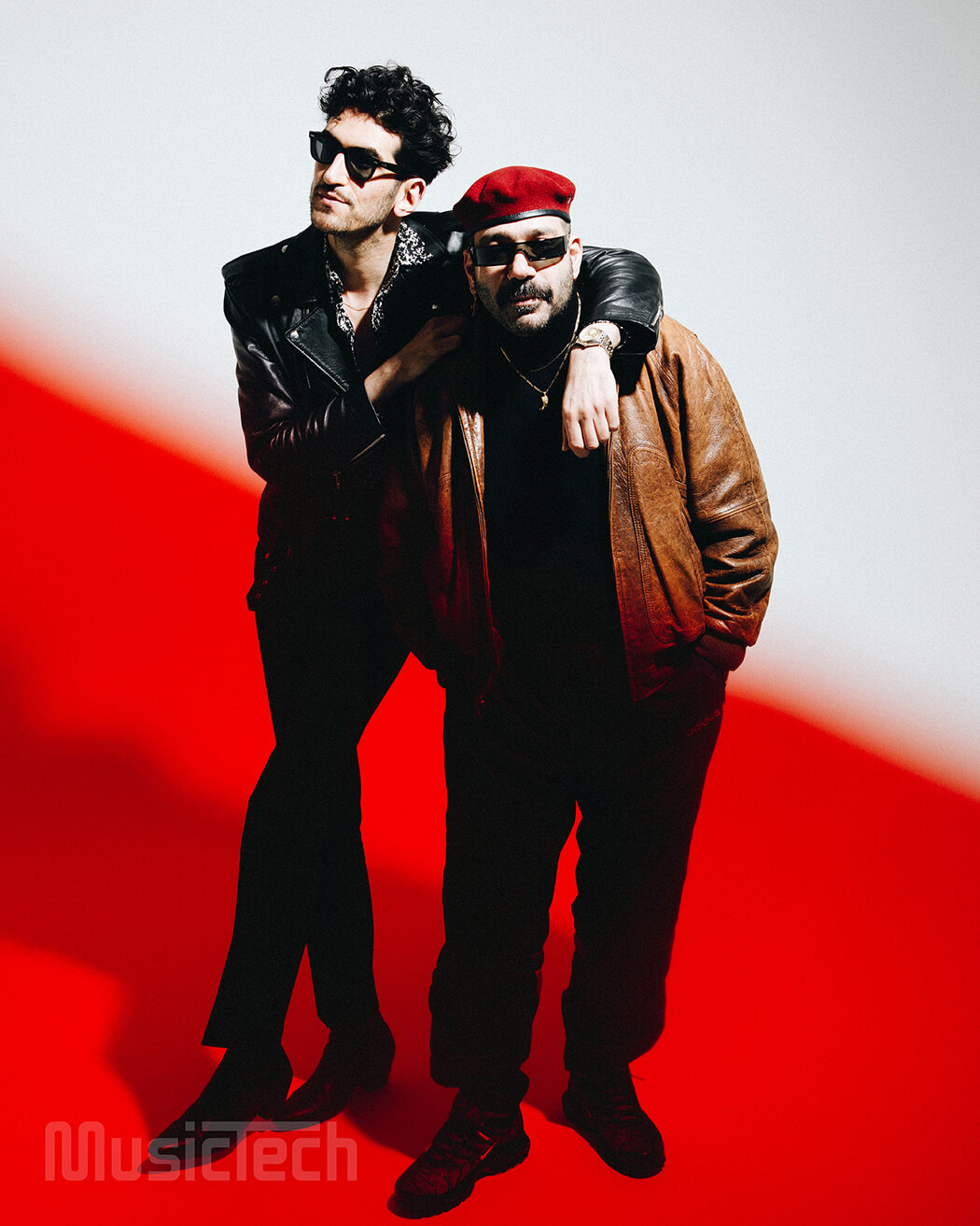
Chromeo has certainly done that. But from the sometimes-satirical lyrical themes to the discernible sonic signature crafted by the duo and their collaborators over the past two decades, does it ever feel restrictive or limiting? Have they boxed themselves in, unable to experiment outside of the accepted ‘bit’ they’ve built for themselves?
“At this point, I don’t care,” says Dave dismissively. “I think we can pull off whatever we want, as long as it’s got groove. It’s gonna be our sonic palette, we’re gonna sing our themes, it’s gonna have our touch, we’re not worried about that.”
P doubles down. “The way we’ve crafted our DNA is the least restrictive thing. We restrict ourselves to our references and the tropes, but have so many infinite ways to use them, that there’s no restriction. You can mix them up in so many different ways. I prefer restricting myself to a few instruments and letting my brain do the rest of the work, and that’s where you find the freedom.”
For Dave, where some listeners might dismissively associate them with ‘the 80s’, it was another pivotal era that Dave says was equally inspirational.
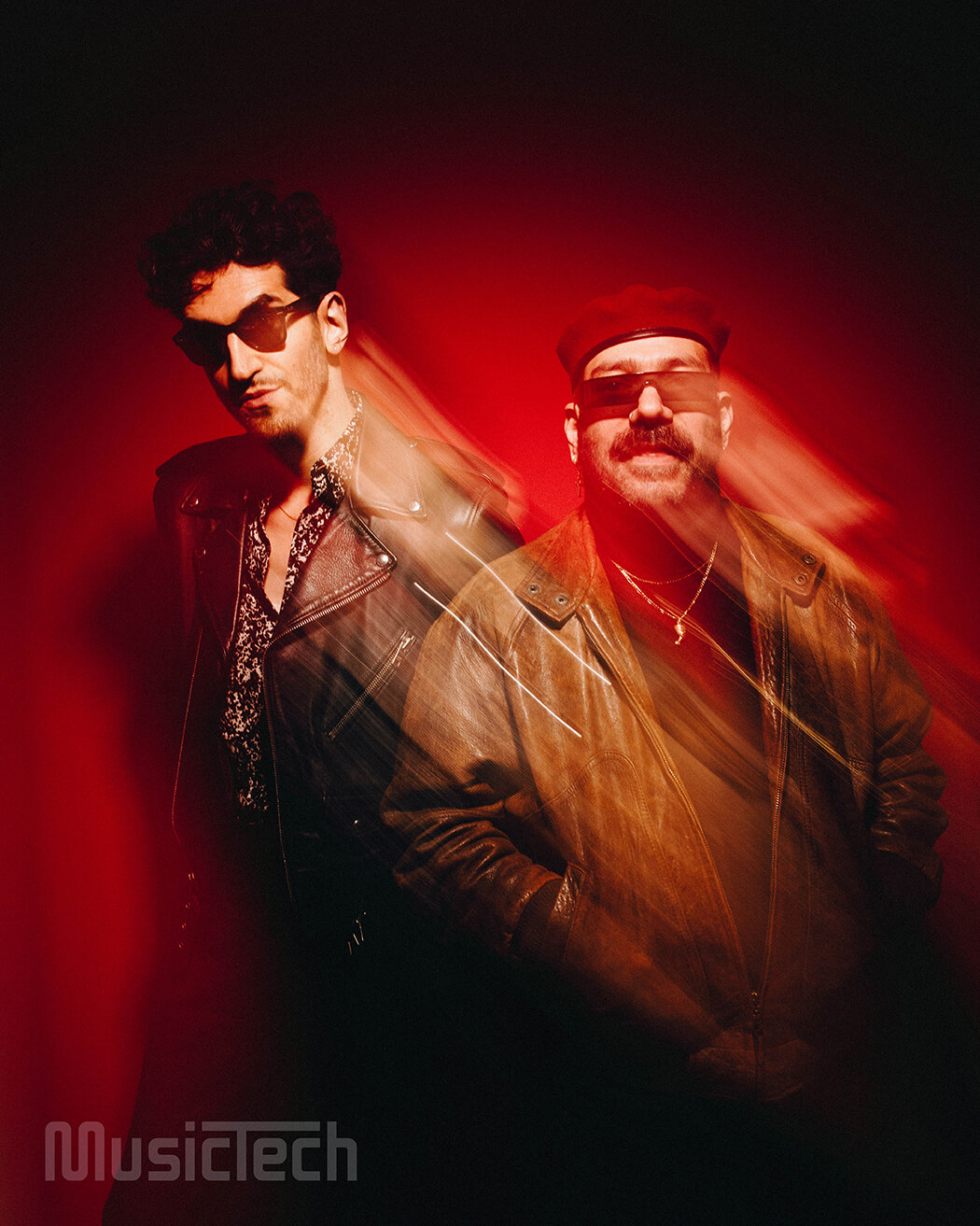
“The stuff from the early 2000s, the first Phoenix album, DFA Records, The Rapture’s House of Jealous Lovers, anything by Stuart Price, Felix Da Housecat. Those albums, we bring up as references in our private language, just as much as we’ll bring up Jimmy Jam and Terry Lewis.
“When you try and do The Rapture with vintage synths and 80s sounds, all of sudden, the horizons open up,” adds P with a smile. “That’s where we come in.”
After 27 years of friendship, the pair have mellowed, and much like the sound of their new record, have space and time to breathe. “One of our goals is to make everyone happy,” admits P, Dave already swept away to another meeting, our time coming to an end. “From our peers to the general public. If Boys Noize calls me up and says ‘I love the way you used the talkbox on that song,’ I’m like ‘Amazing’. And if a mom in the street stops me and says ‘I love your music – my kid always dances to it,’ I’m just as happy.”